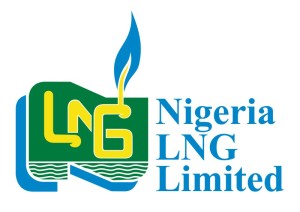The management of the Nigeria Liquefied Natural Gas on Wednesday reacted angrily to latest reports by a non-governmental organisation, ActionAid Nigeria, that Nigeria lost about $3.3 million (N650.1 billion) to alleged dubious agreement granting excessive tax incentives to the company.
The NLNG, in a right of reply issued in Lagos described ActionAid’s report as “false, misleading and hypothetical”.
But ActionAid Nigeria says it is standing by its report, insisting the NLNG exploited the incentives granted it by the Nigerian government by neglecting to resume tax payment at the due time.
The company’s General Manager, External Relations Division, Kudo Eresia-Eke, described as incorrect claims in the report alleging that tax breaks totalling $3.9 billion for NLNG had impacted on social services in Nigeria.
“The reality was that the Federal Government’s initial investment of US$2.5billion, bolstered by the associated tax incentives, has so far yielded over US$33 billion in the form of dividends, taxes and feed-gas purchases for the country over the past 16 years, with additional US$ 5 billion accruing through corporate spend on local goods and services during the same period,” Mr. Eresia-Eke explained.
“The company paid $3.6 billion in Company Income Tax and Education Tax between 2014 and 2015. This is in line with NLNG’s corporate vision to help build a better Nigeria,” he added.
The Nigeria LNG Limited, he noted, was established at a period the LNG technology was still very new in Africa, pointing out that the establishment of the plant made Nigeria the first country in Sub-Saharan Africa to possess such new technology and the second such country in all of Africa.
The pioneering nature of such a company in Nigeria as well as the huge investments required, running to several billions of dollars in foreign investments, Mr. Eresia-Eke said, were the reasons considered by the Nigerian government in granting the company a 10-year tax holiday.
The incentive was granted under the provisions of the Nigeria LNG (Fiscal Incentives, Guarantees and Assurances) Act, CAP. N87, Laws of the Federation of Nigeria, 2004 (“NLNG Act”).
According to Mr. Eresia-Eke, the concept of tax holidays was a global business practice, with Oman, Malaysia, Qatar and Trinidad offering up to 10 years tax holidays, (Angola 12 years) to attract LNG investments.
NLNG’s tax holiday period, he explained, covered the period between 1999 and 2009, which was provided for under Section 2 of the NLNG Act.
During that period, he said the company grew from an initial investment of two trains to a six-train facility, with current total valuation of the plant at $16 billion.
At the expiration of the tax holiday period, the General Manager said NLNG “did not have taxable profit for the 2010 to 2012 financial years due to unrelieved Capital Allowances on qualifying fixed assets acquired during the pioneer period.”
Regardless, he said the NLNG paid Education Tax of $65.08million, $107.04million and $118.59million for the 2010, 2011 and 2012 financial years, respectively.
However, ActionAid’s Policy & Campaigns manager, Tunde Aremu, insisted the figure of $3.3 billion loss in the report were very conservative as they neither covered the initial five years guaranteed the company by the pioneer status provisions, nor include calculations of various other taxes the NLNG was exempted from.
“The incentives, as the finding has shown, were really an unnecessary generous handout to the companies. Before the project took off, there were already subscriptions by companies from different countries for their product,” Mr. Aremu said.
He said there was evidence that the partners in the project exploited the incentives received, to the extent that although the 10-year tax holiday granted it in the NLNG Act ended in 2009, the NLNG refused to commence payment of corporate income tax until 2012.
Premiumtimes.ng……
This page has been viewed 637 times


























